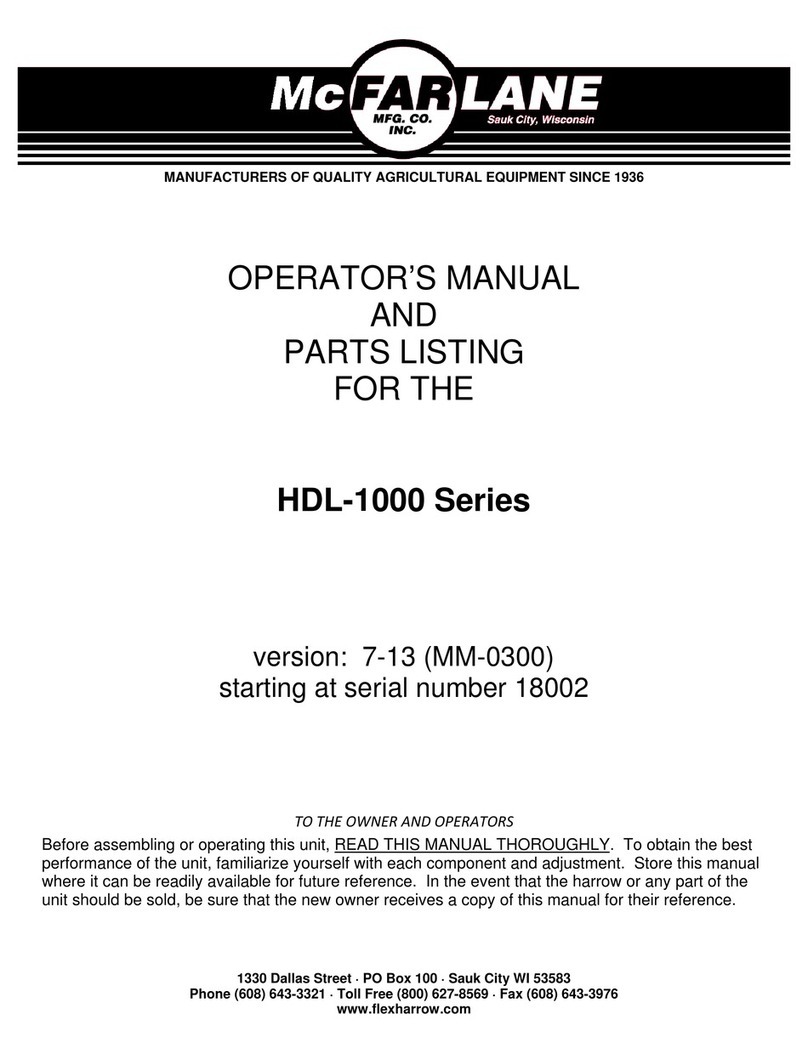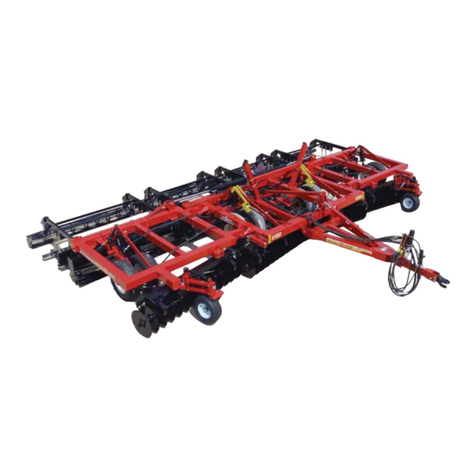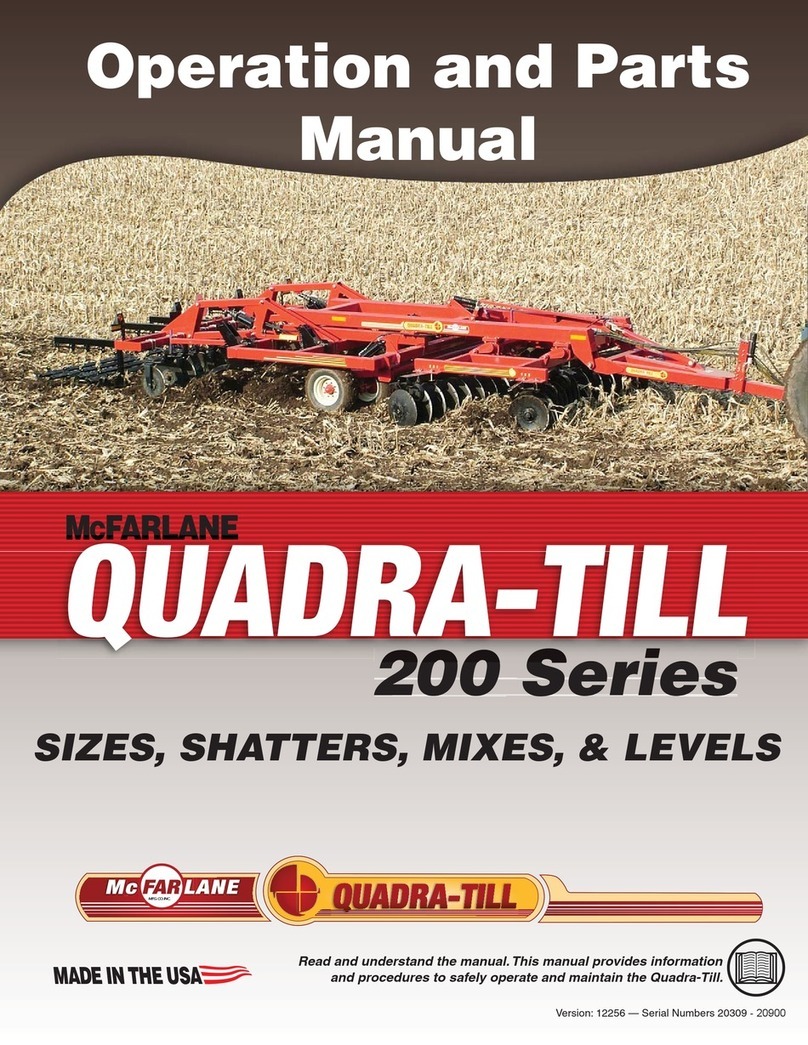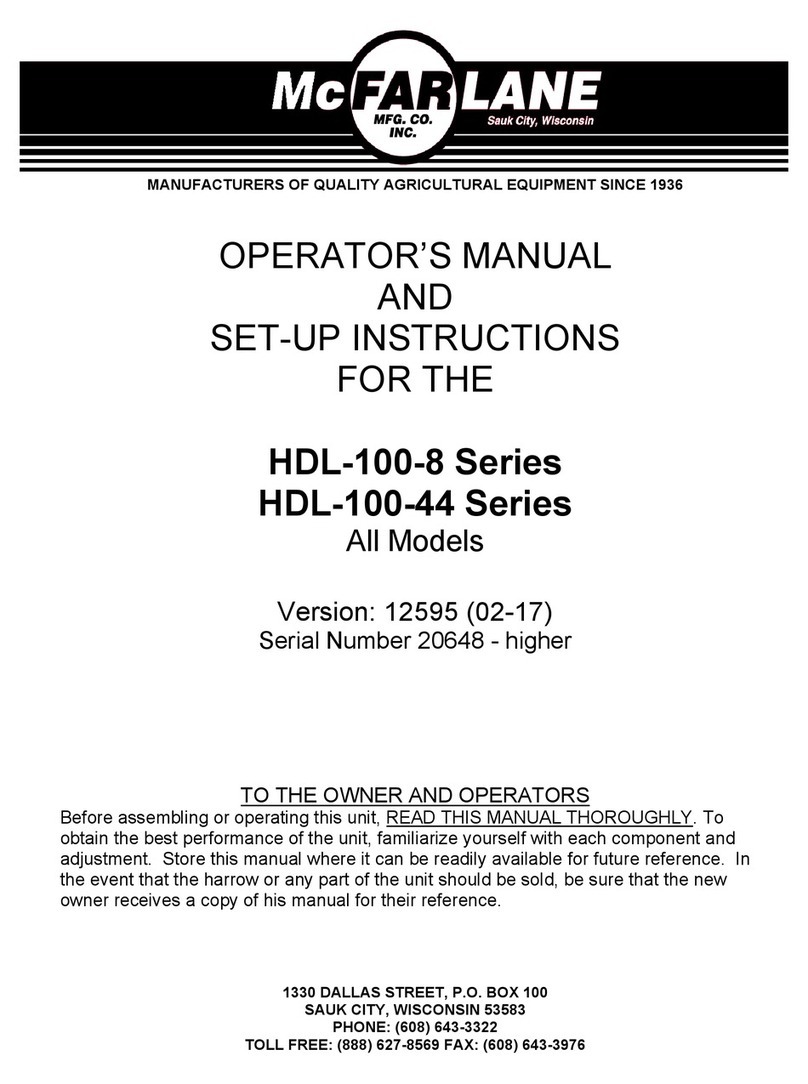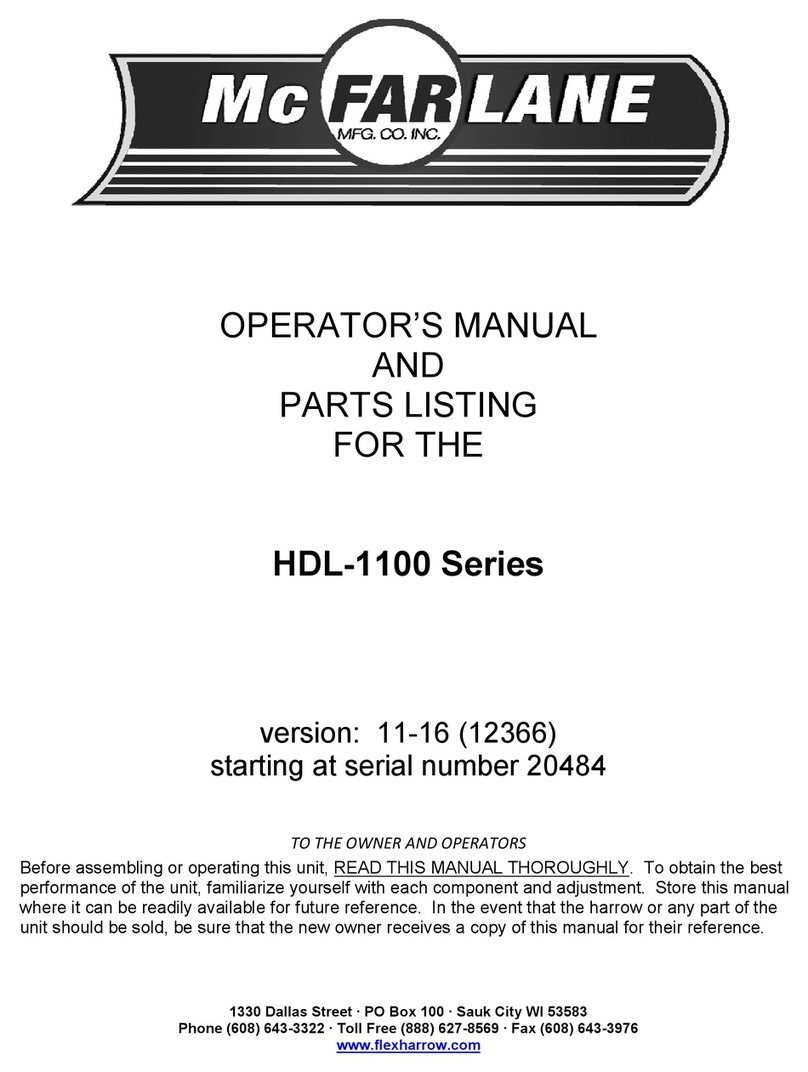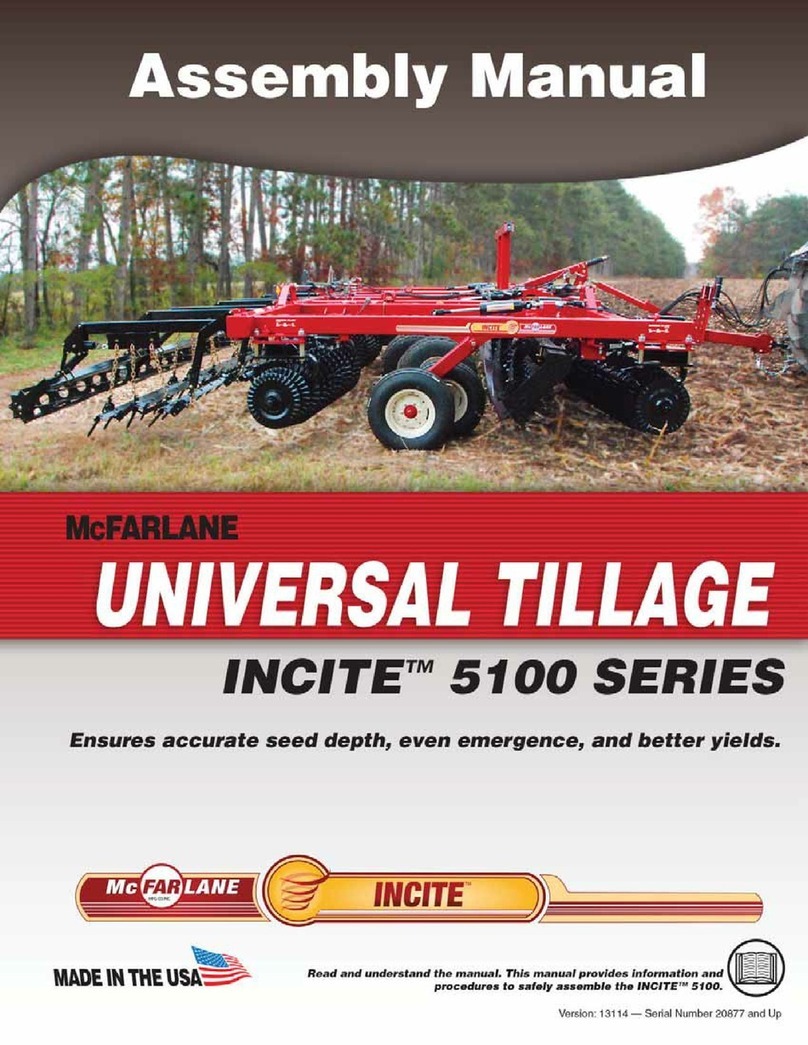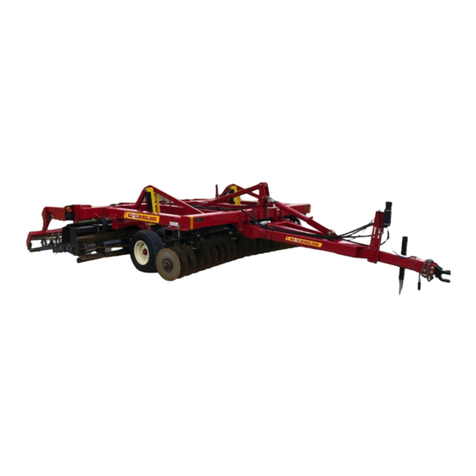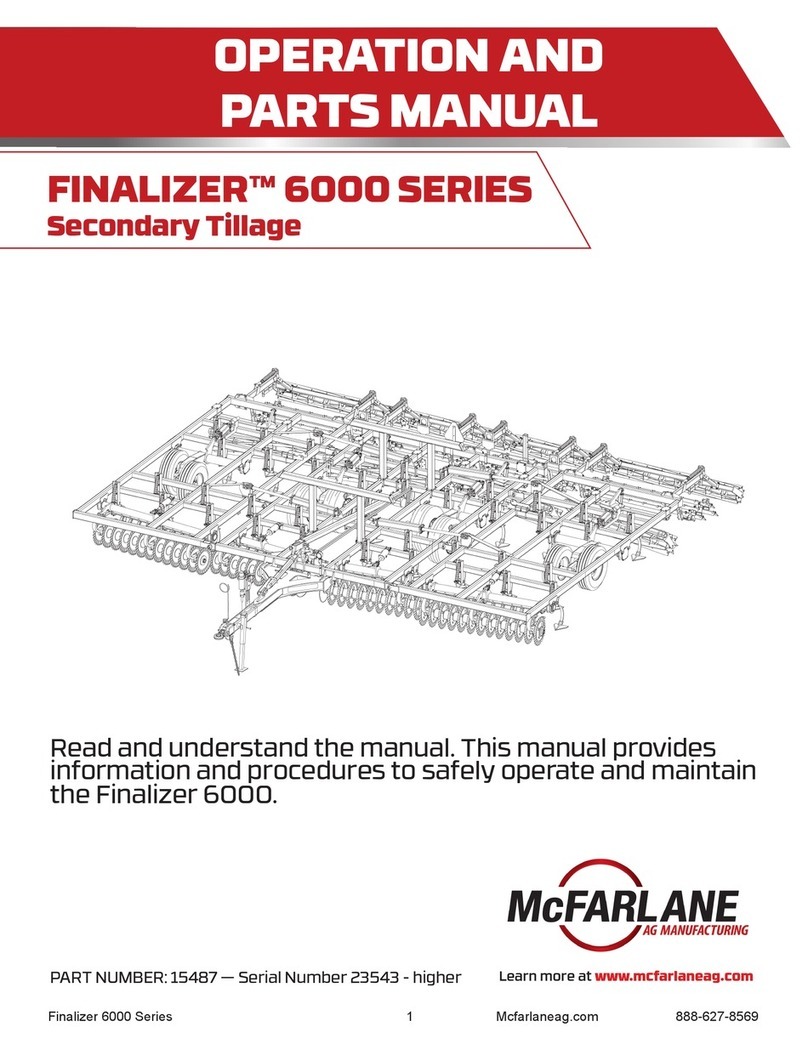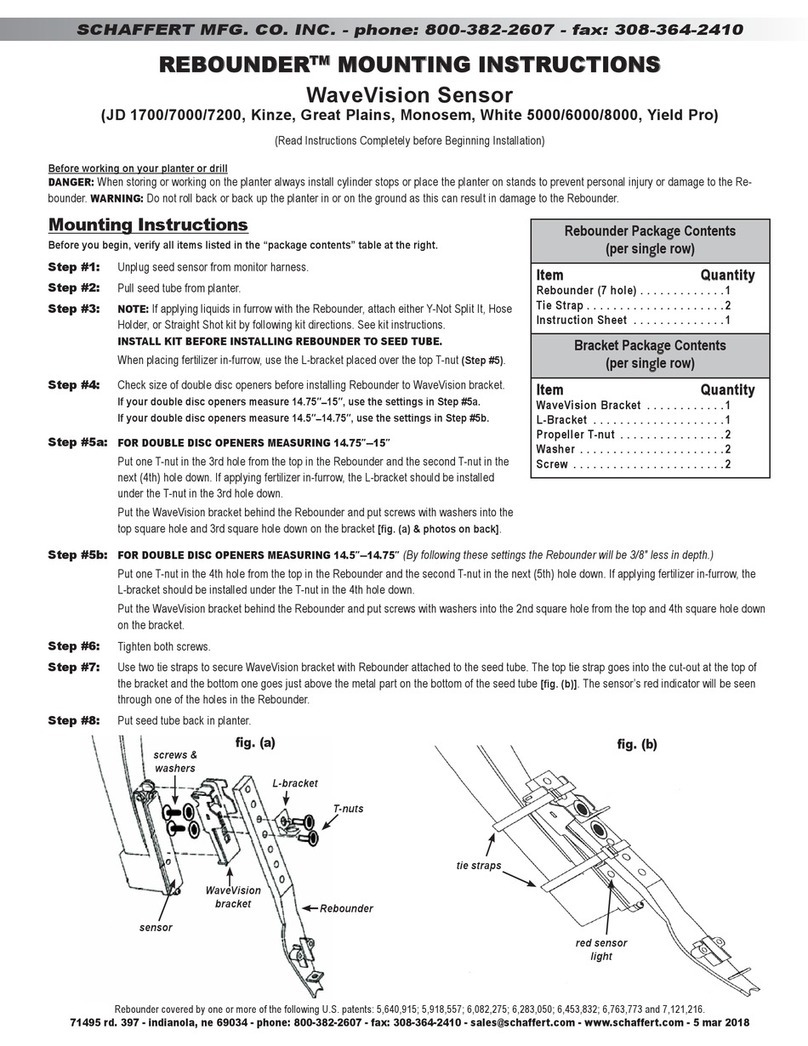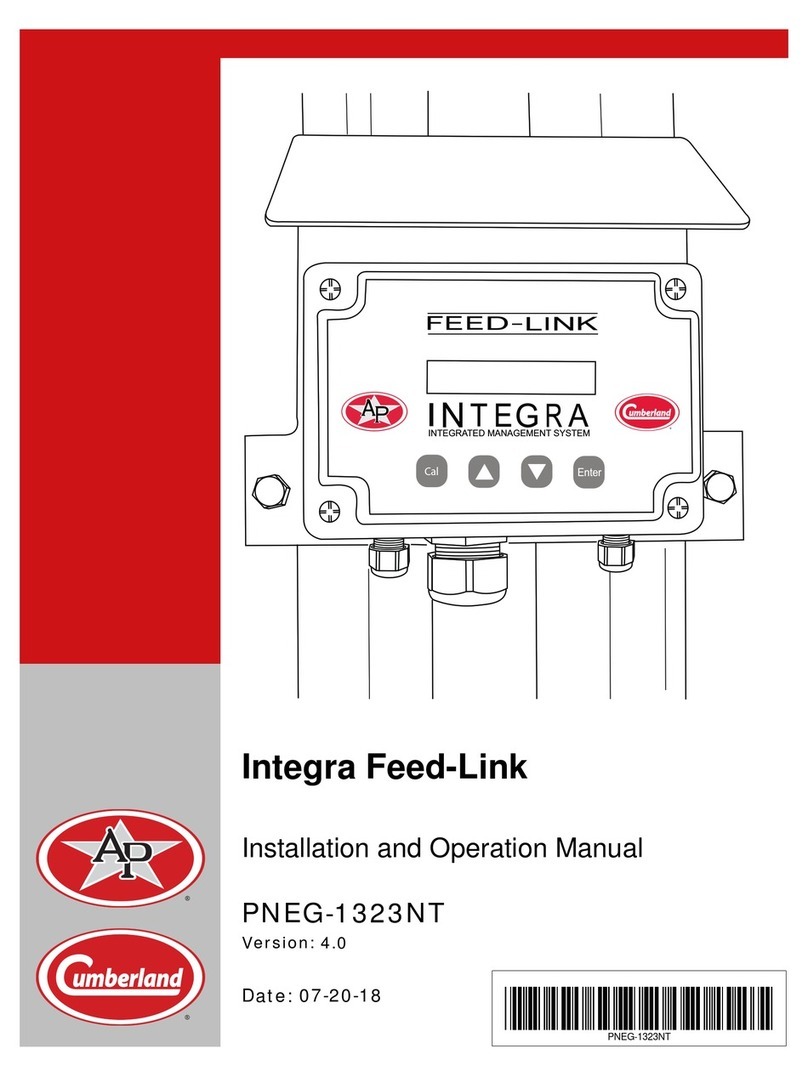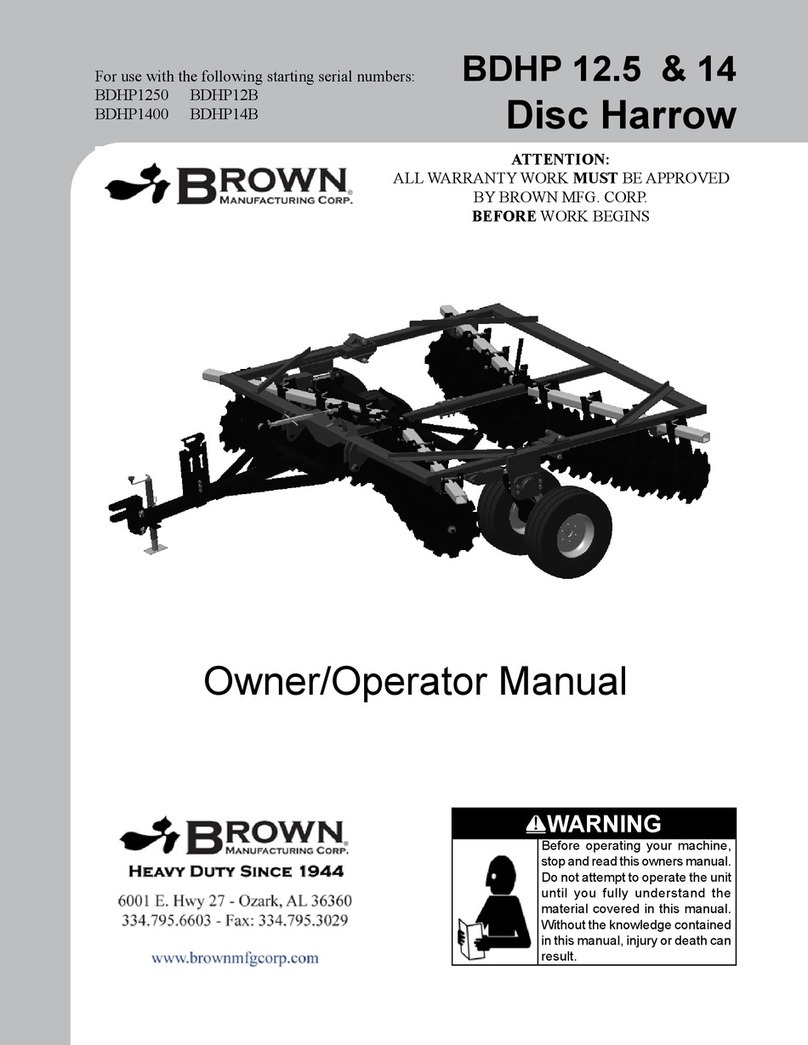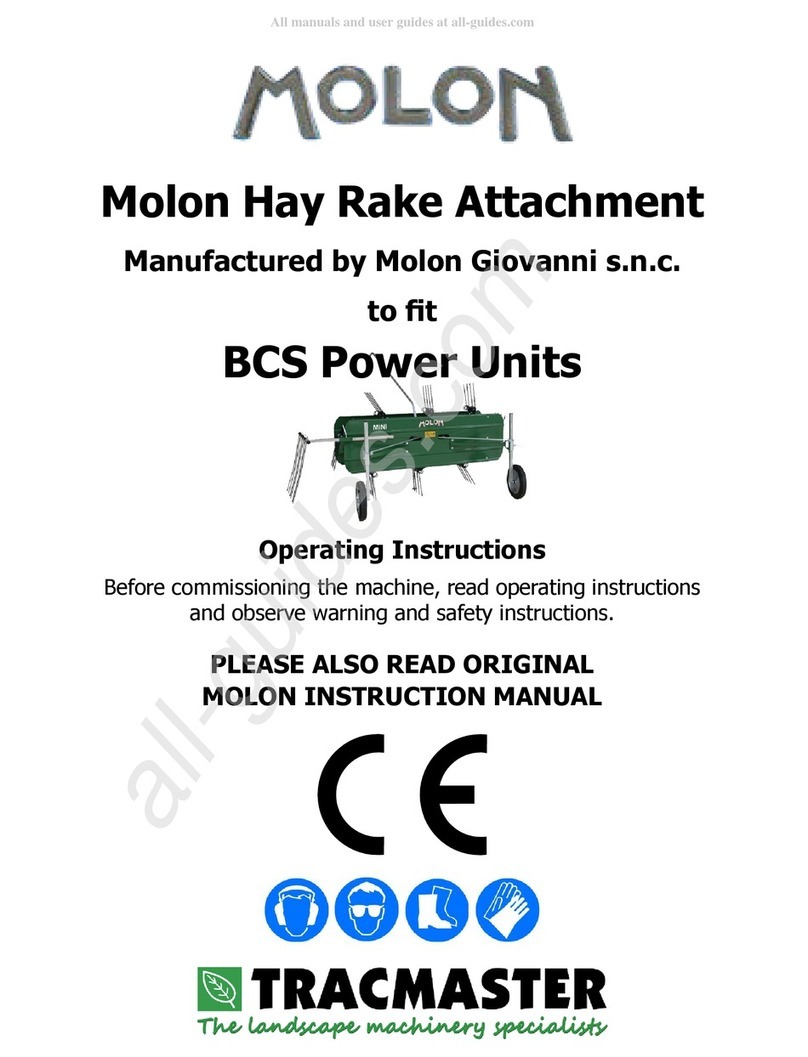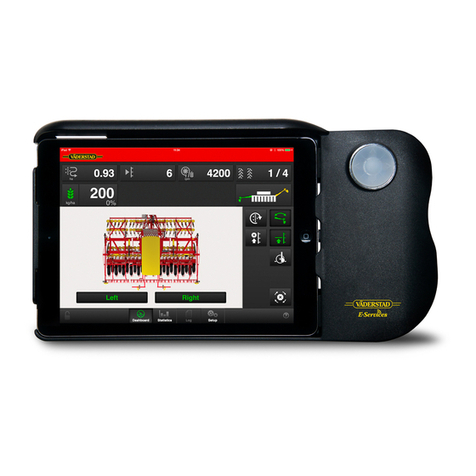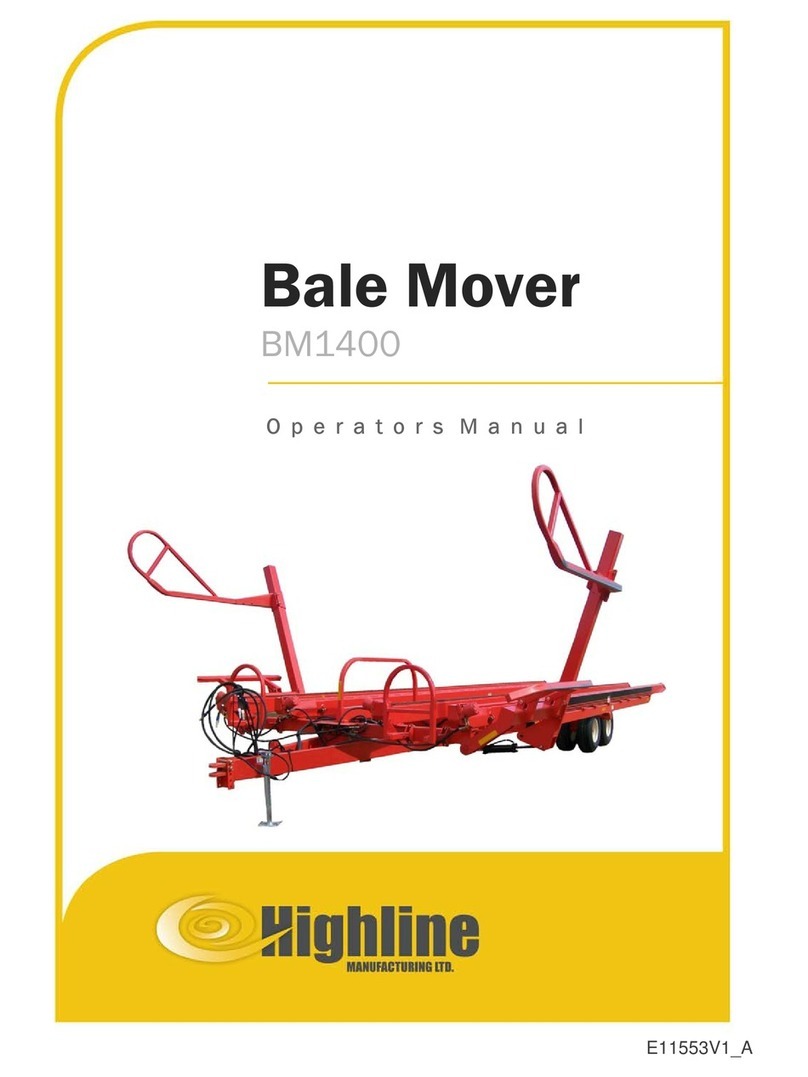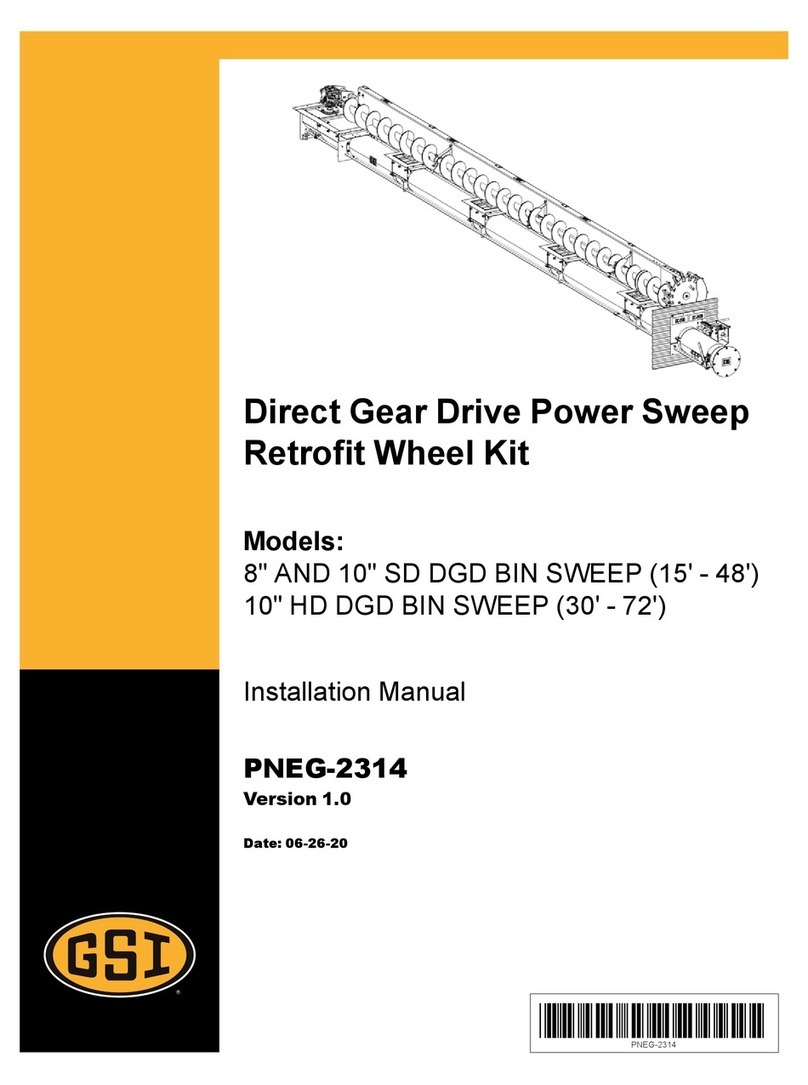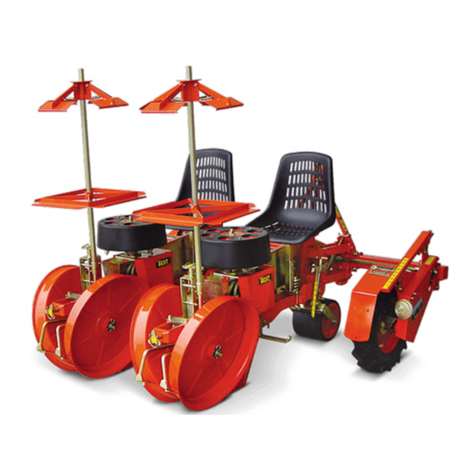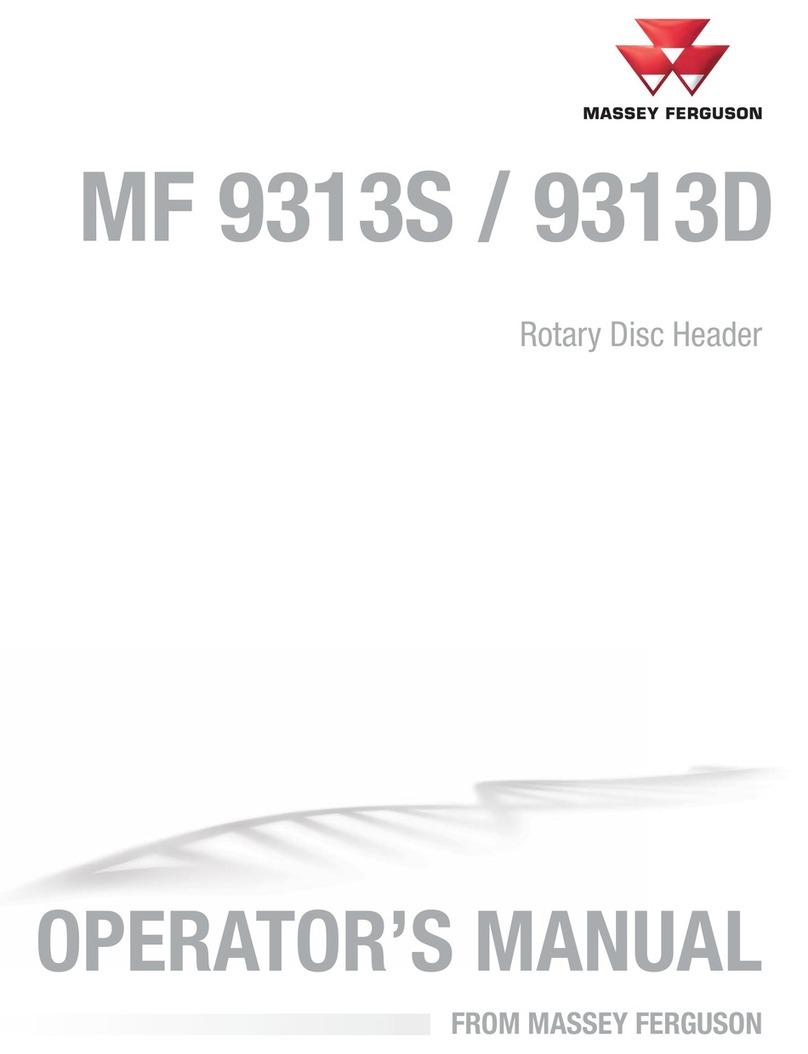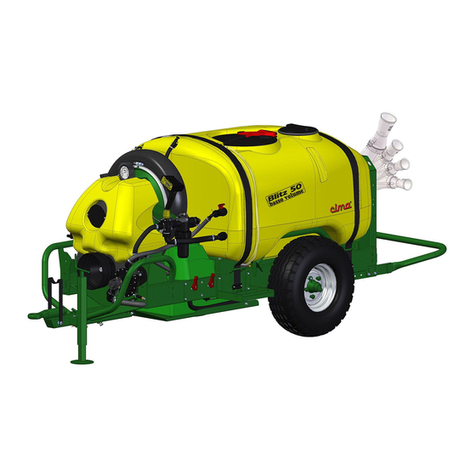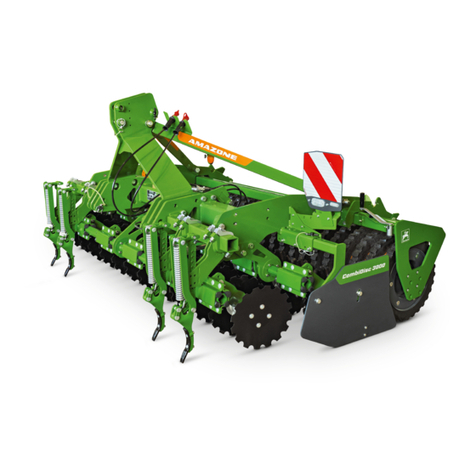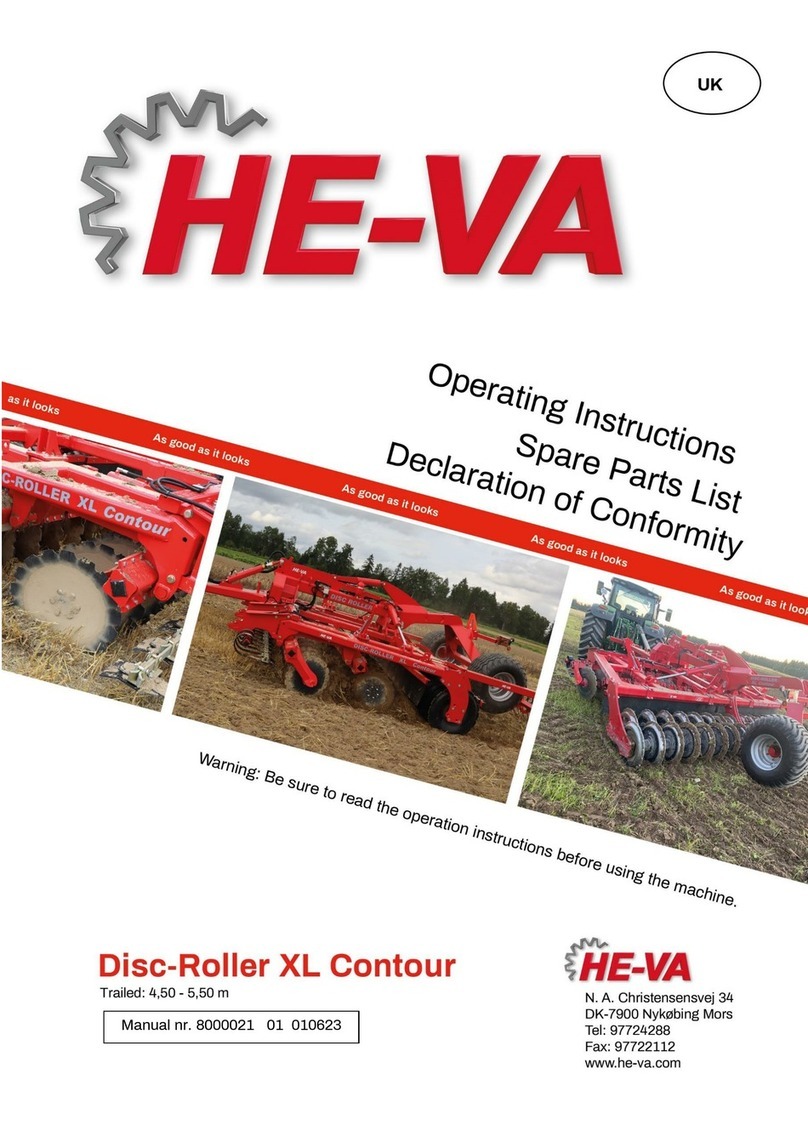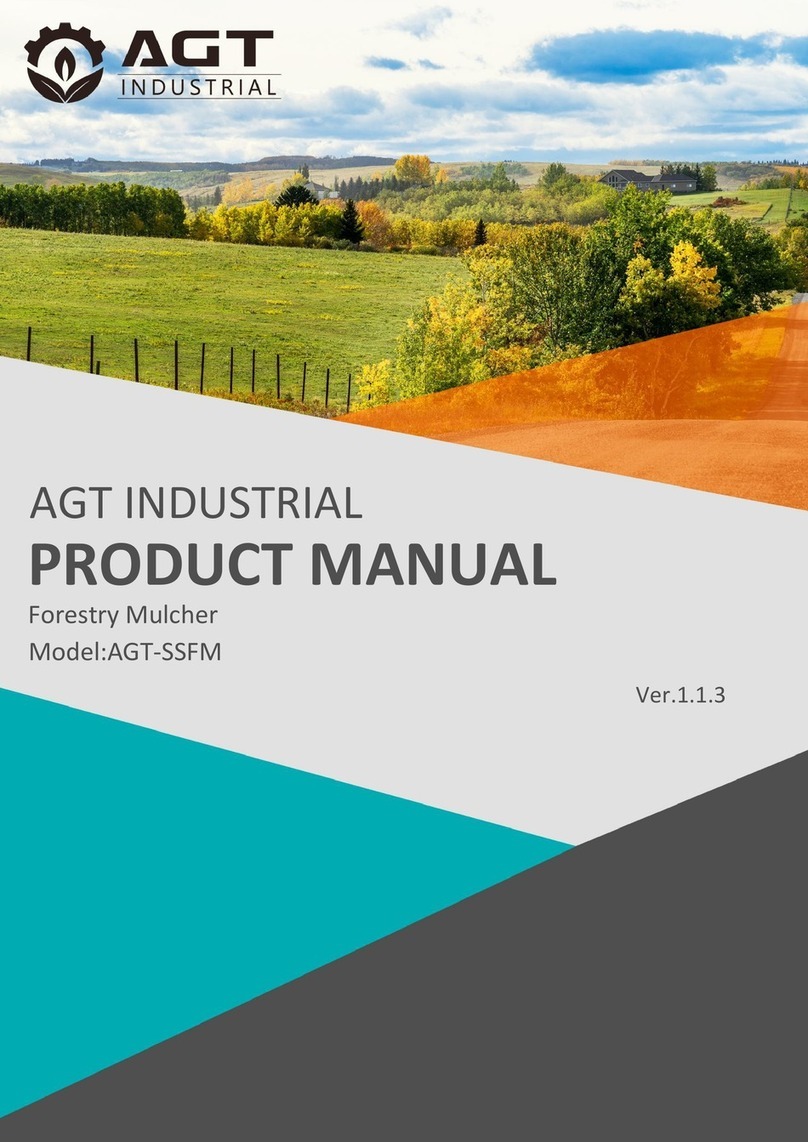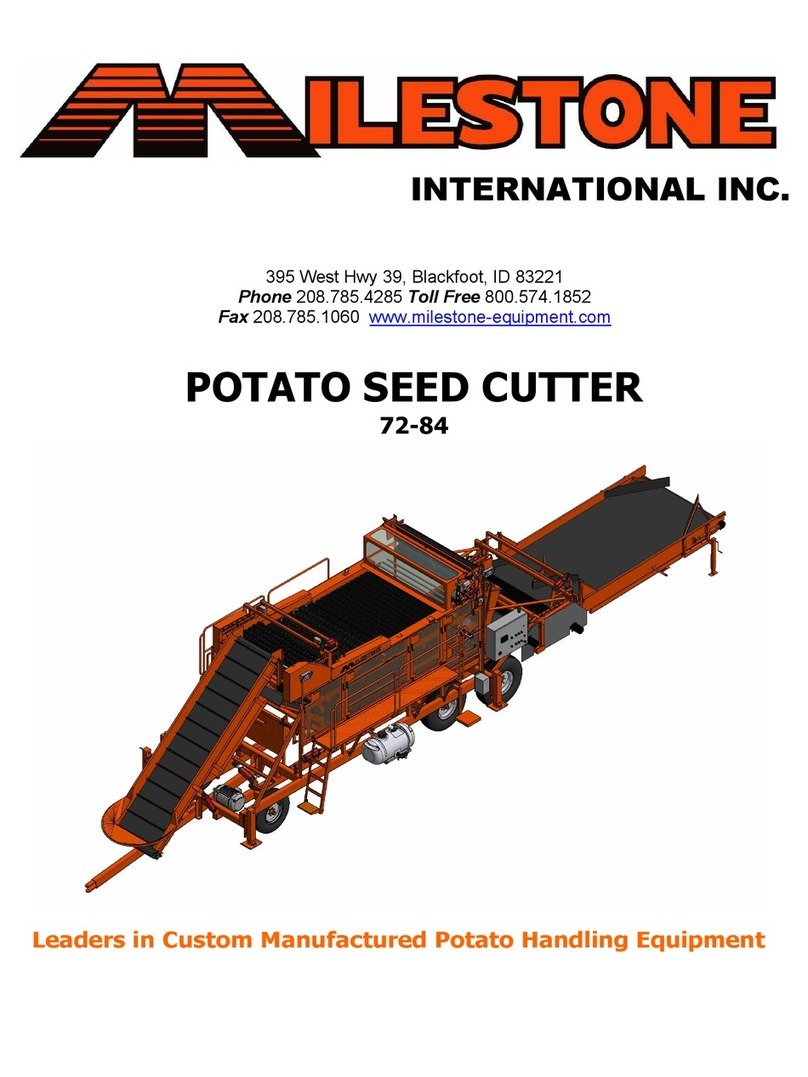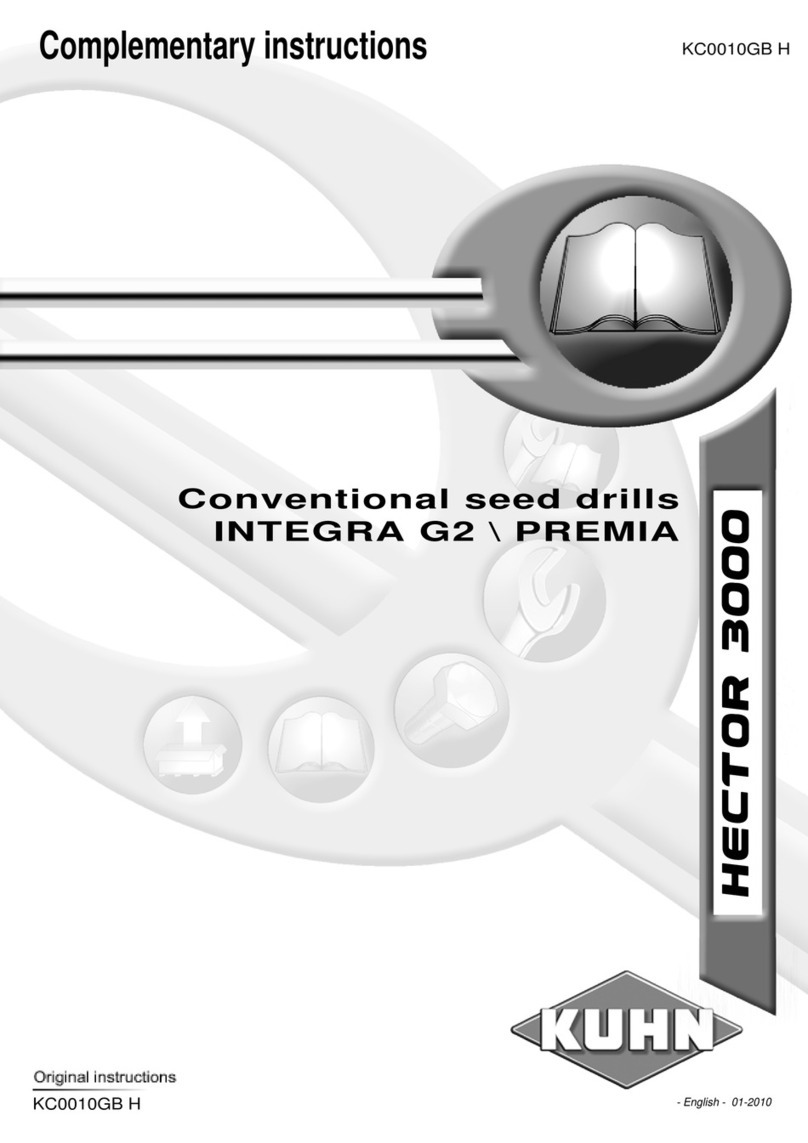
General Operating Safety
Read And Understand Manual
To prevent personal injury or even death, be sure
you read and understand all of the instructions in
this manual and other related OEM equipment
manuals! This equipment is dangerous to children and
persons unfamiliar with its operation. The operator
should be a responsible adult familiar with farm
machinery and trained in this equipment’s operations.
Do not allow persons to operate or assemble this unit
until they have read this manual and have developed a
thorough understanding of the safety precautions and
how it works.
Thisunitwasdesignedforaspecicapplication;DO
NOT modify or use this unit for any application other
than which it was designed.
Units operated improperly or by untrained personnel
can be dangerous!
N
I
NG
AR Hazard And Information Signs
Replaceanymissingorhard-to-readdecals.
Decal placement and part numbers can be found
in the Nomenclature section of this manual.
Damaged Parts Hazard
Do not use this unit if it is in need of repair. If
you believe the unit has a defect which could
cause damage, injury, or death, you should
immediately stop using the unit.
Fall Hazard
Do not use the unit as a work platform. Do
not stand on top of the unit at any time. Do
not ride on the unit or allow others to ride on it.
Entanglement Hazard
Donotwearloosettingclothingwhichmay
become entangled in moving parts.
STOP Crush Hazard (Rolling Over)
When disconnecting the unit or leaving the
operator’s seat:
1. Stop the tractor or towing vehicle.
2. Shut off the engine and remove the ignition key.
3. Set the brakes.
4. Make sure wheel cylinder transport locks are
attached.
5. Relievehydraulicuidpressure.
6. If parking the unit, make sure jack stand is
lowered and retaining pin is installed.
Injury Hazard
Do not permit children to play on or around the
stored unit.
Impaired Operator Hazard
Do not attempt to operate this unit under
theinuenceofdrugsoralcohol.Review
the safety instructions with all users annually.
Personal Protection Equipment
When working around or operating this unit, wear
appropriate personal protective equipment. This list
includes but is not limited to:
• A hard hat
• Protective shoes with slip resistant soles
• Protective goggles, glasses, or face shield
• Heavy gloves and protective clothing
Safe Distance
Keep all bystanders, especially children, away
from the unit while in operation.
To prevent injury, use a tractor equipped with a
Roll Over Protective System (ROPS).
Visually Inspect
Visually inspect the unit for any loose bolts,
worn parts, or cracked welds, and make
necessary repairs before using the unit.
Towing Safety
For towing safety information, refer to the Towing section.
Operation Safety
For operating safety information, refer to the Operation
section.
Assembly Safety
For assembly safety information, refer to the separate
Assembly manual.
Maintenance Safety
For maintenance safety information, refer to the
Maintenance section.
6
Cobra 4200 Series Mcfarlaneag.com 888-627-8569
